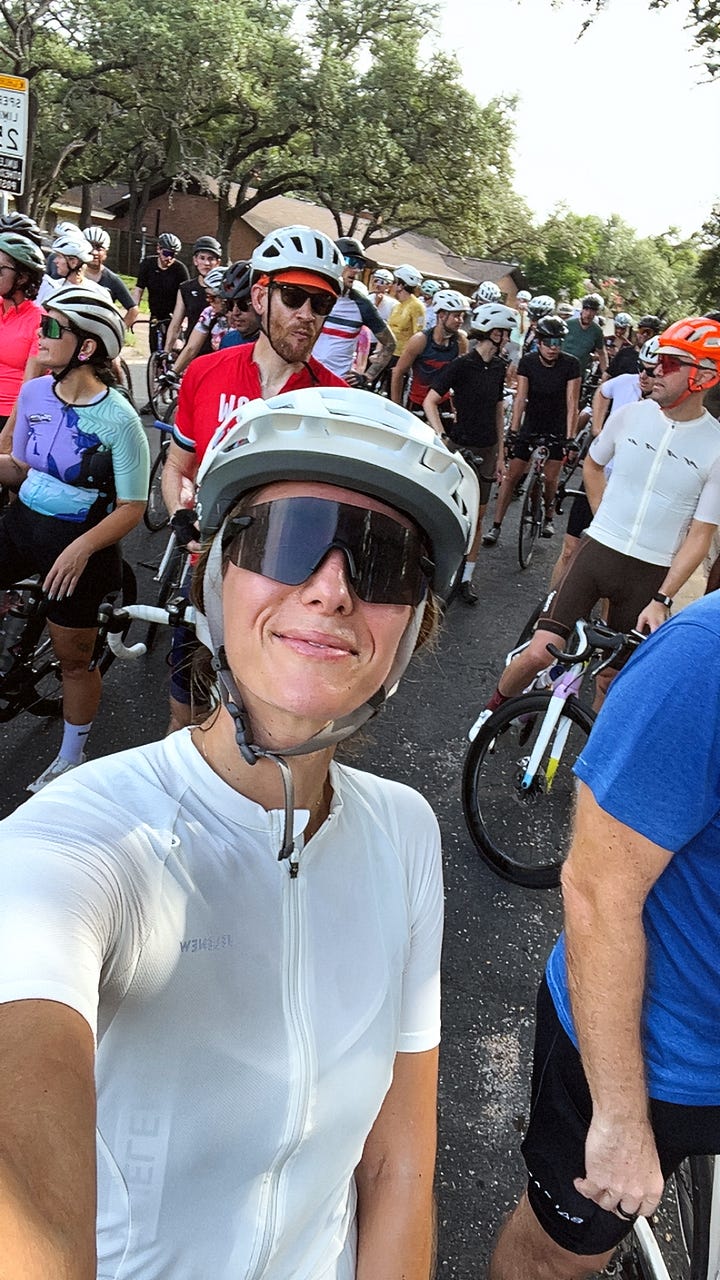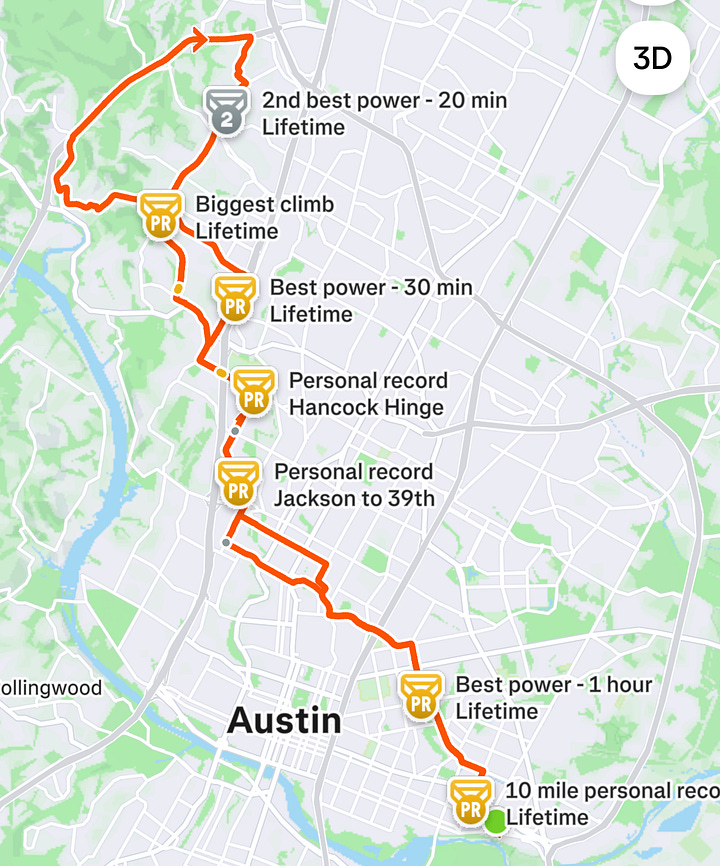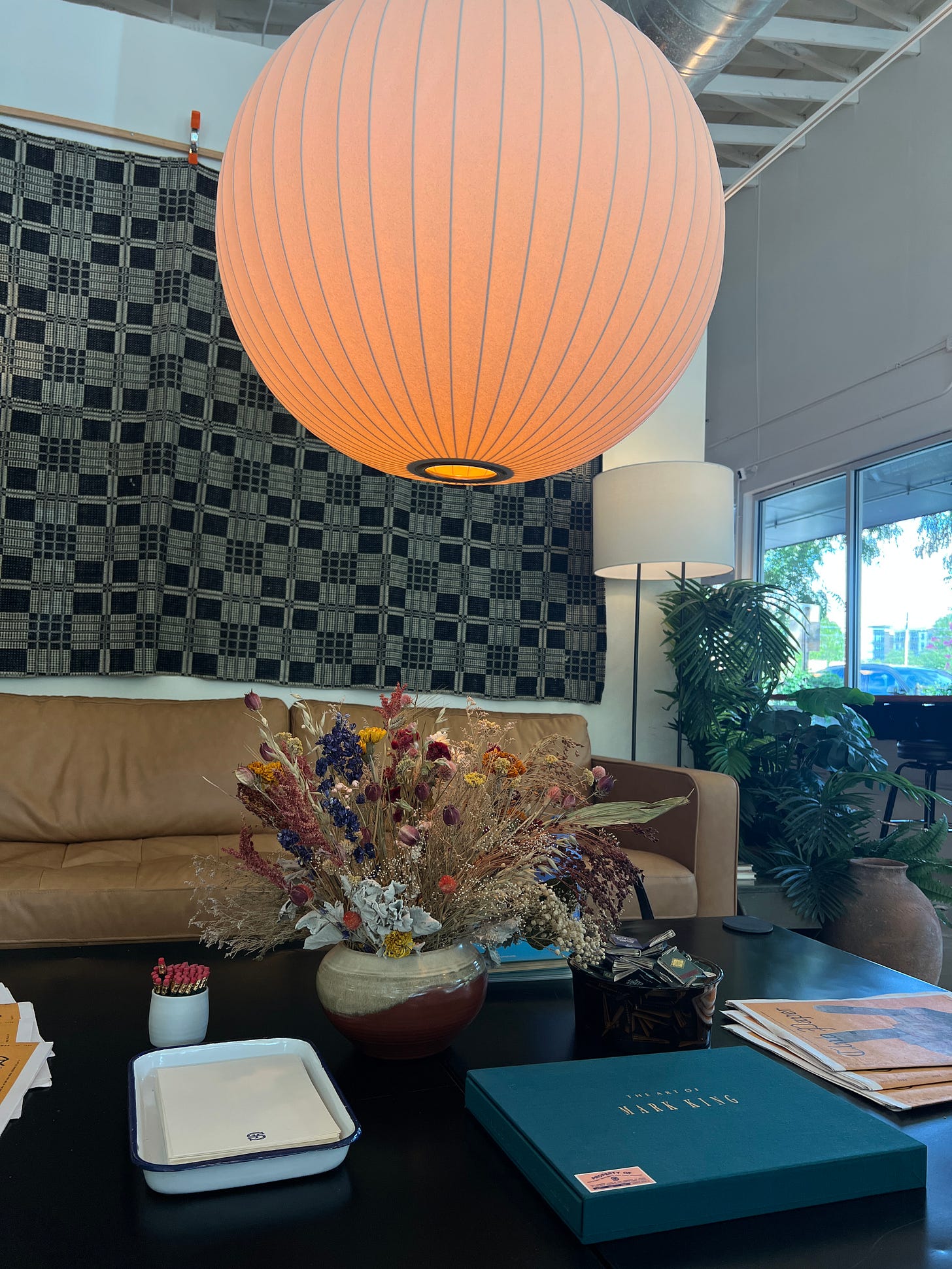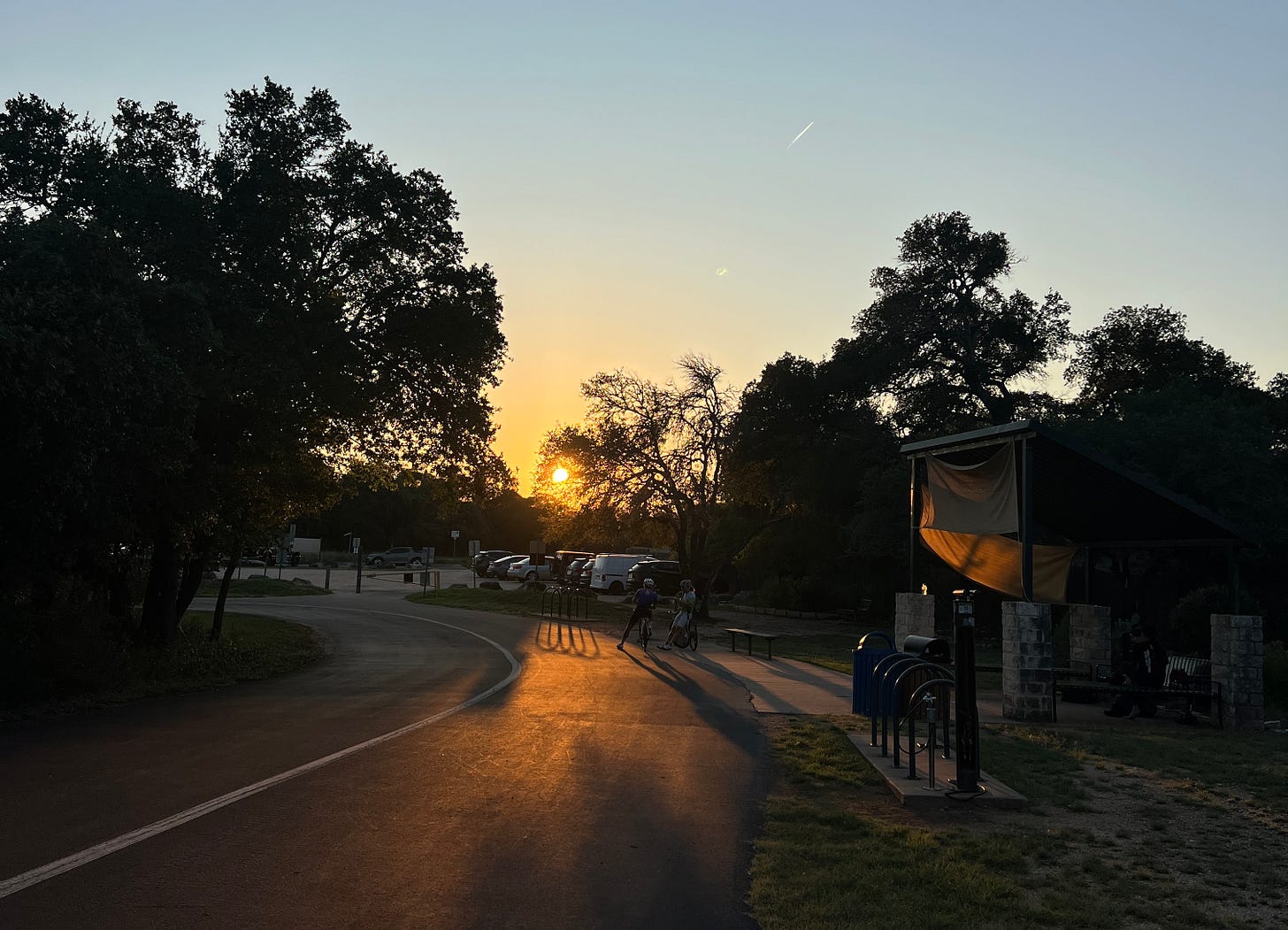50 things I know
Hey there! I’m Raika, a Lead UX and Conversation Designer at Amazon. If you’re new here, welcome! You can subscribe to my Secrets to Great UX Design newsletter for actionable ways to create great experiences, grow your career and more… for designers and non-designers.
50 things I know
It’s August—my birthday month!
I’m not turning 50, but as I look back on the decades behind me, I’ve been reflecting on what I’ve learned and am learning.
These weren’t handed to me—they were hard-won through trial and error, wins and losses, stumbles and breakthroughs.
I feel inspired to share them with you all. So, here we go: 50 things I know.
I’m not trying as hard as I think I am. Really though, even as a “problem-solver”, I’m definitely trying, but not as hard as I think I am. There’s always more I can do. I often find new ways by asking myself, “What would I tell a friend to do in my situation?”
“Above all, don't lie to yourself. The man who lies to himself and listens to his own lie comes to such a pass that he cannot distinguish the truth within him, or around him, and so loses all respect for himself and for others. And having no respect he ceases to love.” — Dostoevsky
My best work is authentic. This is especially true of my writing. When I’ve tried to write what I thought would perform well, those pieces have done the worst. But when I write based on what I’m currently going through or interested in… those pieces have resonated with my audience best.
I’m going for “no”. I hate rejection and don’t want to look foolish. But that fear holds me back. So I’m going for “no.” I’m making audacious asks. I’m trying things I’m not good at. Asking questions. Asking why if someone says no. I’m done assuming. If I want something, I’m going to fight for it. And then accept the outcome, whatever it may be.
I learn things when I need to. School taught me to prepare first, then take the test. But life works the other way around—you get the test first, then learn the lesson. I couldn’t have known better.
“Do the best you can until you know better. Then when you know better, do better.” — Maya Angelou
Support friends that are out there creating and putting themselves out there! I regret not doing this sooner. Follow their newsletter, buy their children’s book… the cost to support them is low and typically free. Reshare their work, leave comments, give likes… (Big thanks to my friends that do this for me! It really does mean so much to me.)
To thrive in the age of AI, I must become exceptionally skilled at human connection. I'm investing time in nurturing relationships—because while AI can mimic and replicate, it can’t be truly original. Fortunately, I can and we all crave deeper connection.
Celebrate all the big, little and micro-wins! Life is hard. Some times it’s really hard. We’ve all got mountains to climb and sometimes we slip down. Or when cycling, have to bail and walk up the rest of the hill. But there’s lots of silver linings and joyful moments I can celebrate for myself and others. Write your wins down. Bake the cake. Buy the balloons! Celebrate all your progress!!


I get to write the script! When I’m getting caught up in what others might be thinking, I choose a better narrative. Instead of “she’s slow on the bike,” I hear: “Wow, she’s getting faster!” I choose the story in my head. And I’m making it ones that empower me.
Hot take: stress is a choice. When life gets busy and stressful, especially with work, I don’t have to play into it. More often than not taking a break to go workout or cycle helps give me the clarity and boost I need to get my work done. Stress can be a badge of honor we put on. But honestly? It’s not that impressive... and I’d rather have fun and enjoy life than be overwhelmed and stressed by it.
Time is finite and it’s time to start. There’s comfort in “it’s never too late” and there is some truth to that but eventually time will run out, or it’s going to be 100x harder to do. So I’m getting to work! Today is the day! The time is now.
“The best time to plant a tree was 30 years ago. The second-best time is now.”
— Chinese ProverbDesigners are in sales. I gotta know how to sell my work. I’m a big believer that sales is a part of every role. So I learn how to speak their language, communicate the pros and cons of my designs, and understand the business side of implementing my proposed solutions.
If I’m constantly compromising, I’m in the wrong room, relationship, or company. Compromise becomes a problem when it erodes my core values and leads to self-abandonment. True connection is built on alignment, not negotiation.
Run experiments. I created worksheets for myself where I write out my hypothesis, the duration, when I’ll evaluate it, the costs, and so on. Writing it all out helps me and takes the pressure off.
All life is an experiment. The more experiments you make the better. — Ralph Waldo Emerson
Simplify. I constantly ask myself “is there a better, simpler way to do this?” throughout the day, at every part of the design process.
Ask for feedback earlier than I’d like. The best designers don’t let their ego prevent the work from evolving and incorporating feedback from others. If I get no feedback, it’s not a win. My work can always get better.
I can be a part of the Art of Information movement or the Art of Distraction. I want to use my talents to serve others. I strive to create meaningful work! Sometimes it’s in my 9-5 and sometimes it’s on my own.
The person that says “hi” first is the winner! People, myself included, seem to have so many rules about how the other person should be. They should reach out, or be the one to say hi, they should initiate plans with me… Ugh. It’s too much! I’m choosing to be the friendly one! And when someone pops into my head or I hear good news about someone, I’m reaching out to them.
I’m not afraid to quit fast, quit often, and quit without guilt. In the early part of my life I took a lot of pride in gritting things out. I wasn’t a quitter. As Seth Godin explains tho, strategic quitting is the secret of successful people. Sometimes quitting is to protect my ego, other times it’s because it’s not a fit like I thought it’d be or I have new data. It takes practice and good self-awareness to know the difference.
Users lie in research, but their behavior tells the truth. I watch what people do, I don’t just listen to what they say they do. Their actions reveal actual needs and pain points and I design for them.
Education is part of my job. I’m the expert and I get to teach stakeholders and non-designers about design. I’m always explaining my rationale and ideally using data when I share work.
Measure task completion rates, error recovery, and user satisfaction alongside business goals. Data is your friend. While the design may look great, collecting and reviewing these metrics will help you know if the design is working how you intended it to.
I don’t just get a seat at the table, I have to earn it. I had to take the initiative to demonstrate strategic thinking before I got brought into strategic discussions. Designers too often can be seen as just the execution arm. That might be my starting point but I won’t be there for long.
I gotta work on my portfolio while the project is happening, not when it’s time to look for a new job. Capturing the key moments to tell a story about my work and the process helps me highlight the work and my contribution. Working backwards for your portfolio is a game changer!
Ship early and often. This might be my biggest learning at Amazon. Ship things when they’re good enough and then improve them based on real user feedback rather than trying to perfect it in isolation or with research studies. Research is good but learning in market is essential.
A lack of credentials aren’t my problem (or yours). If we’re being real, they’re an excuse. I didn’t have formal training in UX or Conversation design, but here I am! I put in the time to master skills, evolve my skillset and demonstrate it in my portfolio.
Focus on what’s important, not just the urgent. When I’m focused on the most urgent thing or on too many things, my energy becomes scattered, my thinking diluted, and my impact watered down. I’m busy, but not necessarily my most effective. So I’ve been making a new habit of checking in on my values and how I’m spending time to make sure they are in sync.
“The key is not to prioritize what’s on your schedule, but to schedule your priorities.” — Stephen Covey
I trust my instincts. I don’t go along just because others do. If something doesn’t feel right, I speak up. I question it. I explore it. Even when it's inconvenient, I trust my instincts.
Specialization sets you apart. Early in my career I learned that the people who are the best in the world can wear many hats but have a specialization. Wearing multiple hats is important with the advancements of AI, but I’m still a big believer in the power of specialization. My leaders says: “we need Raika for this problem” not just a UX or conversation designer. My specialization has changed many times throughout my career and will continue to. (PS to be specialized just means I’m a little further down the path. I know a bit more than everyone else.)
It’s okay to imitate! And I don’t have to be shy about it. Bruce Mau's gives great advice about imitation. And in fact, this whole post was because I saw another “50 things I know” post on Substack (credit and links at the end :). I can imitate and add my own twist. And I’ll always give credit where credit is due.
It's crucial that I learn to love, address and accept my needs. They're what make me me. And they matter. When I take my needs seriously, I feel more grounded, more clear, more myself. It’s not selfish. It’s self-respect.
Life is more fun when I don't always do things the way they've been done before. As long as I stick to existing processes I’ll keep getting versions of the same results.
I gotta expect the dip. More good advice I learned from Seth Godin. The process may be fun at the beginning but a dip is guaranteed. So I’ve started to anticipate the dips in advance and plan for them.
True change doesn't come from dramatic moves—it comes from small, consistent ones. Big changes are tempting when things aren’t how I want them: move cities, get a new job, wipe my phone (jk that’d be crazy). But they're often easier than the quiet discipline of daily choices: going to the gym before work, keeping my promises, writing instead of scrolling.
Don’t say “have to” or “ought to”. I have autonomy and a good attitude. I don’t “have to go to work”, “I get to go to work”.
Build good relationships along the way. I’ve gotten almost all of my jobs by being referred by colleagues. The people in my life are crucial to the life I build. Networking is best when it’s sincere vs transactional.
I’d rather try and look silly than be critiquing and ripping on the people trying.
Theodore Roosevelt’s quote will always be a favorite of mine. As someone that can be too consumed by what others think of me, I find his words stirring.
“It is not the critic who counts: not the man who points out how the strong man stumbles or where the doer of deeds could have done better. The credit belongs to the man who is actually in the arena, whose face is marred by dust and sweat and blood, who strives valiantly, who errs and comes up short again and again, because there is no effort without error or shortcoming, but who knows the great enthusiasms, the great devotions, who spends himself in a worthy cause; who, at the best, knows, in the end, the triumph of high achievement, and who, at the worst, if he fails, at least he fails while daring greatly, so that his place shall never be with those cold and timid souls who knew neither victory nor defeat.” — Theodore Roosevelt, Speech at the Sorbonne, Paris, April 23, 1910
I’m a high agency person (and you can be too). A high-agency person is someone who believes they have the power to shape their own life. They don’t wait for permission, blame circumstances, or get stuck in helplessness. Which means I’ve chosen to take initiative, find a way, own my choices, focus on what I can control and believe my actions matter.
Constraints are my best friend in the design process. If I don’t have them, I create them. Constraints breed creativity. Embrace the limitations—budget, time, technical restrictions… They force me to find elegant, focused solutions instead of over-designing or trying to design for everyone.
A tired body and a satisfied soul, that is my goal. I’m at my best when I’m doing things that bring me joy and align with my purpose.
Make something. Make anything! I’m a deep thinker. Which is great but I’ve learned I need to limit my thinking and get to doing.
The rougher the work, the better the feedback I’ll get. This is especially true for user research. Stay in low-fidelity early on—sketch, scribble, iterate fast. Not only does it lead to better ideas and better outcomes, but once something looks polished, people assume it’s close to final—even when it’s not. Which makes them less likely to give honest, critical feedback. Instead, they may just say it looks “nice,” because they don’t want to hurt my feelings or question something that seems finished.
Good conversational experiences use progressive disclosure. Don't dump everything at once. Great AI experiences mimic great human experiences. Train LLMs to reveal information and options gradually as the conversation develops and context becomes clearer.
Conversation design is mostly about error handling. (And so is life). Learn how to handle failure gracefully. Plan for misunderstandings, errors, and edge cases. Design clear recovery paths that don't make users feel silly, stupid or stuck. Apologize quickly and own any mistakes.
Lead with listening, not talking. Design conversations that prioritize understanding the user's intent before providing solutions. Confirm assumptions when appropriate or ask clarifying questions.
I don’t need to run massive studies to uncover major usability problems. User testing with 5 people reveals about 85% of issues.
Always allow people to submit forms to see where the error is. Never make the CTA to submit a form disabled until all required fields are completed. Throw up some errors. Take the guesswork out. That’s where people abandon.
Stressing about the potential of layoffs (or whether or not I’ll get an offer) is a waste of time and energy. What’s meant to be will be. There were jobs I really wanted and didn’t end up getting. And, I love where my path has led me! I likely wouldn’t be at Amazon doing conversation design and getting to work on AI experiences if I had gotten those jobs. Time is better spent working than stressing.
Consistency creates trust. Use patterns for similar elements. When users learn how one thing works, they should be able to predict how related things work.
Real friends will encourage and support my dreams. There are different levels of friendship. Real friends will be offering to help however they can and cheering me on.
I’m hopeful. There’s so much good ahead! It’s easy to be a cynic. The news makes you think things are worse than ever and we’re doomed. Yes, we live in a broken world and sometimes it feels like the best days are behind me. I miss old groups of friends or past seasons of life. But I’ll feel that way about today at some point. Growth is still unfolding. Love is deepening. And the best is yet to come!
"Cynicism is not a neutral position — and although it asks almost nothing of us, it is highly infectious and unbelievably destructive. In my view, it is the most common and easy of evils. I know this because much of my early life was spent holding the world and the people in it in contempt. It was a position both seductive and indulgent...
Unlike cynicism, hopefulness is hard-earned, makes demands upon us, and can often feel like the most indefensible and lonely place on Earth. Hopefulness is not a neutral position either. It is adversarial. It is the warrior emotion that can lay waste to cynicism. Each redemptive or loving act, as small as you like... keeps the devil down in the hole. It says the world and its inhabitants have value and are worth defending. It says the world is worth believing in. In time, we come to find that it is so." — Nick Cave
I got this format from Cate Hall, who got it from her husband, who got it from Mari Andrew. It’s a good format... I probably have a full post in me for about 1/3 of these, so if you like one of them, let me know!
And I want to encourage you to write and publish your own. And then tag me!
Favorite Quote and Photos of the Week
“We do not learn from experience... we learn from reflecting on experience.” — John Dewey
That’s it for today.
Thanks a ton for reading, whether this is your first or 50th time. I sincerely appreciate you. Please let me know if you have a topic you’d like me to write about. Just reply to this email, I’d love to hear from you!
Until next time,
raika




I need another 50!
I really loved this post Raika. Thank you for sharing your wisdom and experience! I found the Rossevelt quote particularly inspiring. I am going to get back to writing a book I started. If you are interested in reading an early version at some point, I would value your feedback. I could also use the social pressure. Can't wait to see what happens next in the life stories we are writing for ourselves.